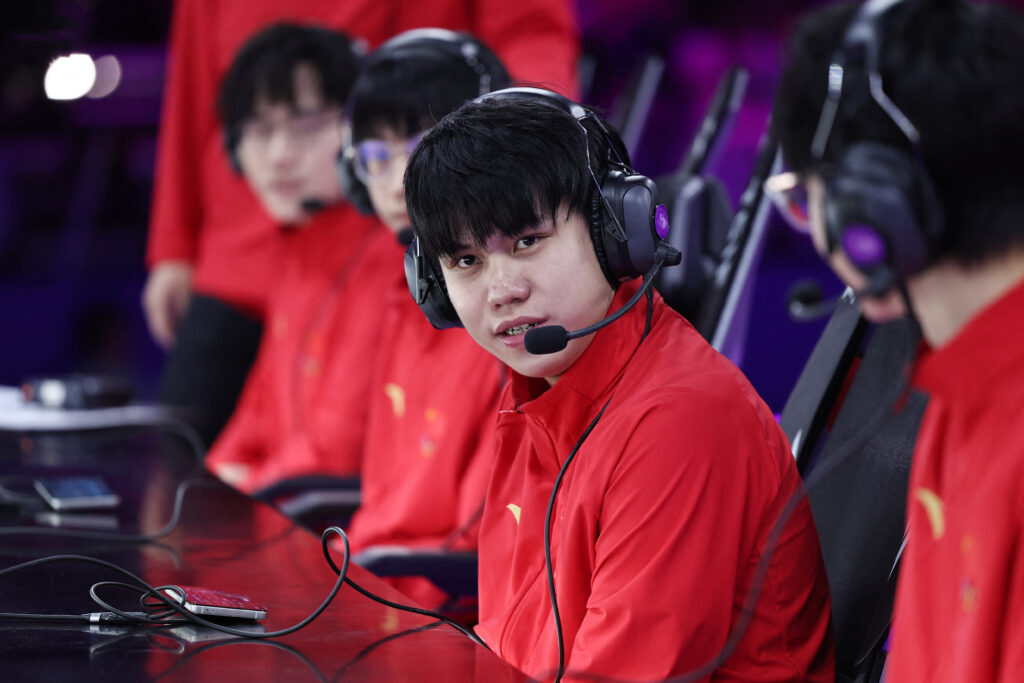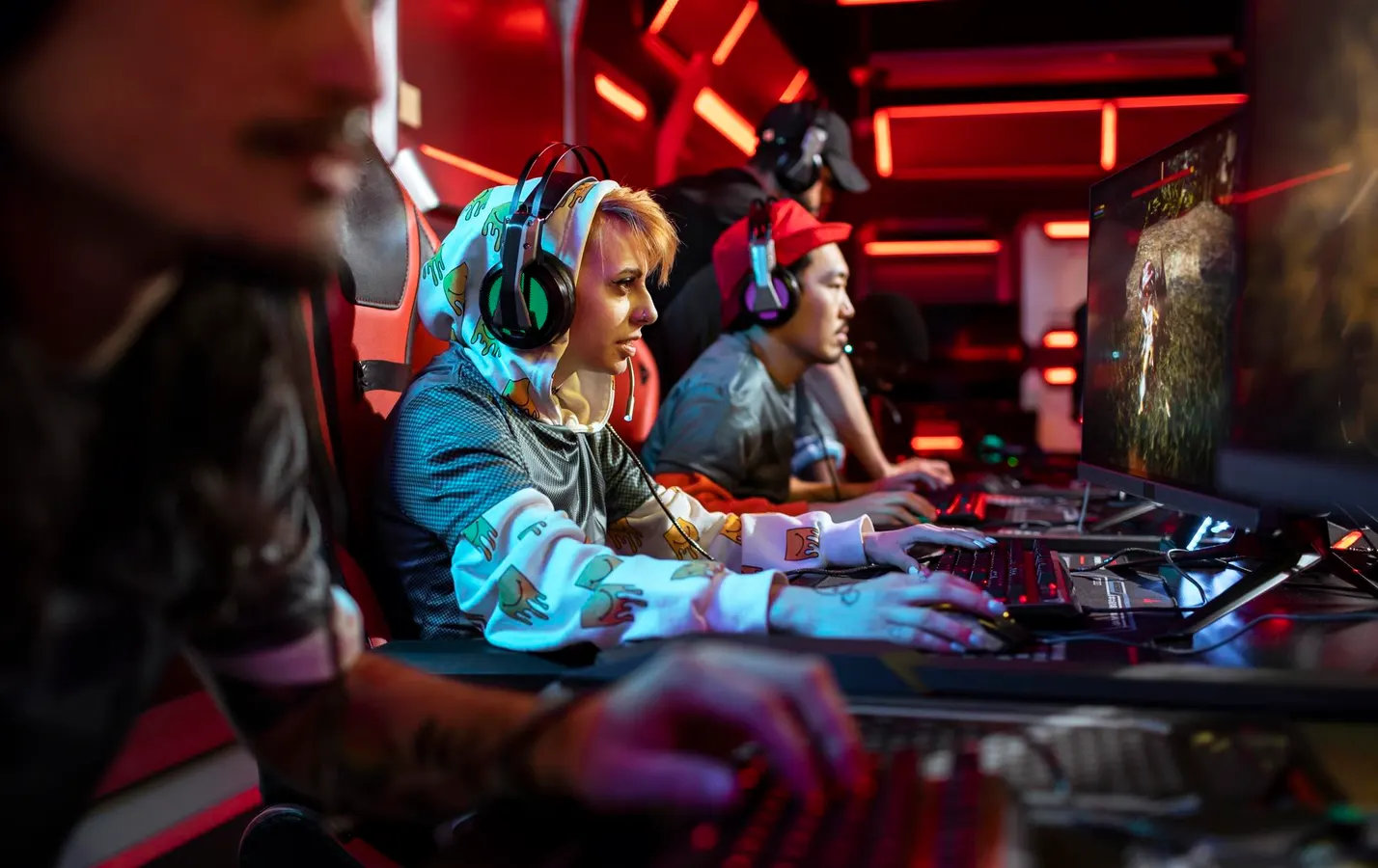Ever wonder what it’s really like to be a professional gamer? Many people imagine it’s just playing video games all day, but the reality of the esports gamers lifestyle is much more complex and demanding. It’s a world of intense training, strict schedules, teamwork, and immense pressure. Forget the stereotype of a gamer in a dark basement; today’s esports athletes are disciplined professionals dedicated to mastering their craft.
This article pulls back the curtain on the esports gamers lifestyle. We’ll explore everything from the daily training routines and the importance of physical health to the mental challenges and the financial realities of going pro. You’ll get a comprehensive look at what it takes to compete at the highest level of gaming.
Key Takeaways
- The esports gamers lifestyle is highly structured, involving rigorous training schedules similar to those of traditional athletes.
- Physical and mental health are critical components, with top players focusing on exercise, nutrition, and mental wellness to maintain peak performance.
- Becoming a professional gamer requires immense dedication, practice, and a strategic approach to skill improvement.
- Team dynamics and communication are just as important as individual skill, especially in team-based games.
- While lucrative, a career in esports has financial uncertainties and requires smart planning.
What Does a Typical Day Look Like?
The daily routine of a professional gamer is far from lazy. It’s a structured schedule designed to maximize performance and skill development. The perception of simply rolling out of bed to play games for fun couldn’t be further from the truth. The esports gamers lifestyle is built around discipline and a rigorous work ethic.
A pro gamer’s day often starts early, not unlike a typical 9-to-5 job. After waking up, many athletes engage in physical exercise to get their blood flowing and sharpen their minds. This is followed by a team breakfast and a morning meeting to discuss strategies, review previous matches, and set goals for the day. The bulk of the day is then dedicated to practice, which is broken down into different segments. This structure is essential for preventing burnout and ensuring every aspect of their gameplay is honed to perfection.
The Morning Grind: Strategy and Warm-ups
Mornings are typically reserved for strategic planning and individual practice. This isn’t just about playing random matches. Players might spend hours in dedicated training modes, practicing specific mechanics like aiming, movement, or last-hitting in a MOBA. They also study replays of their own games and those of their opponents, a process known as VOD (video on demand) review. This analytical approach helps them identify weaknesses, understand enemy tendencies, and develop counter-strategies. It’s a mentally demanding part of the esports gamers lifestyle that sets professionals apart from casual players.
Afternoon Scrims: The Core of Practice
The afternoon is prime time for “scrims,” or scrimmage matches, against other professional teams. This is where the real training happens. Teams will play back-to-back games for several hours, practicing their strategies, team compositions, and in-game communication in a competitive environment. These aren’t casual games; they are intense, focused sessions where every move is analyzed. A coach is often present, guiding the team, pointing out mistakes in real-time, and facilitating post-scrim discussions. This block of practice is crucial for building team synergy and adapting to the evolving meta-game.
Evening Wind-Down: Personal Streams and Solo Play
After a full day of team practice, many players continue to play into the evening. Some use this time for “solo queue,” playing ranked matches on their own to keep their individual mechanics sharp. Others may stream their gameplay on platforms like Twitch or YouTube. Streaming not only provides an additional source of income but also helps build a personal brand and connect with fans. However, balancing streaming with the demands of competitive play is a challenge in the esports gamers lifestyle, as it can add extra hours to an already long day.
The Importance of Physical Health and Fitness
A common misconception about the esports gamers lifestyle is that it’s sedentary and unhealthy. However, top-tier organizations and players know that physical health is directly linked to in-game performance. A healthy body supports a sharp mind, faster reaction times, and better endurance for long, grueling tournament days.
Most professional teams now have dedicated fitness trainers and routines. Players are expected to engage in regular physical activity. This isn’t about building massive muscles, but about improving cardiovascular health, posture, and core strength. Sitting for long hours can lead to back pain, wrist injuries, and other physical ailments. Regular exercise helps counteract these risks, ensuring players have long and sustainable careers. Proper fitness is a non-negotiable pillar of the modern esports gamers lifestyle.
Nutrition for the Mind
What a player eats has a significant impact on their cognitive function. Just like any other athlete, esports pros need fuel that supports sustained focus and energy. You won’t find top teams surviving on junk food and energy drinks. Instead, many organizations employ nutritionists to create meal plans for their players. These diets are often rich in:
- Lean proteins: For sustained energy.
- Complex carbohydrates: To fuel the brain.
- Healthy fats: From sources like avocados and nuts, which support brain health.
- Vitamins and minerals: From plenty of fruits and vegetables.
Hydration is also key. Staying properly hydrated is essential for maintaining focus and preventing the mental fatigue that can lead to crucial in-game errors.
The Role of Sleep
Sleep is perhaps the most critical and underrated aspect of an esports athlete’s health. Getting enough high-quality sleep is essential for memory consolidation, reaction time, and emotional regulation. During sleep, the brain processes the information learned during the day’s practice sessions, solidifying new skills and strategies. Sleep deprivation can be devastating to performance, leading to slower reflexes and poor decision-making. Because of this, strict sleep schedules are a core component of the professional esports gamers lifestyle.
Mental Fortitude: The Psychology of a Pro Gamer
Technical skill and strategy will only get you so far in esports. The mental game is what separates the good from the great. The pressure to perform in front of millions of viewers, with prize money and careers on the line, is immense. Managing stress, anxiety, and tilt (a state of mental frustration) is a daily challenge.
The esports gamers lifestyle requires incredible mental resilience. Players must be able to bounce back from a tough loss, accept criticism from coaches and teammates, and maintain unshakable confidence in their abilities. A single mistake can cost a team the entire game, and the ability to reset mentally and focus on the next play is a hallmark of a true professional. This mental toughness is not something people are born with; it is a skill that is trained and developed over time.
Working with Sports Psychologists
Recognizing the importance of the mental game, many top esports organizations now employ sports psychologists. These professionals work with players on a variety of mental skills, including:
- Stress Management: Techniques to stay calm under pressure.
- Focus Training: Exercises to improve concentration and avoid distractions.
- Confidence Building: Helping players overcome self-doubt and perform at their best.
- Team Communication: Facilitating healthy and productive communication within the team.
This support system is vital for navigating the high-stakes environment of professional gaming. For more insights into how different industries are evolving, you can find interesting articles at https://worldupdates.co.uk/.
Team Dynamics and Living in a Gaming House
In many popular esports, teamwork is everything. Games like League of Legends, Valorant, and Counter-Strike require seamless coordination and communication. To foster this synergy, many professional teams live and train together in a “gaming house.”
Living in a gaming house means that the line between teammate and roommate is completely blurred. This arrangement is a defining feature of the esports gamers lifestyle for many pros. It allows for an immersive training environment where players can eat, sleep, and breathe their game. They are constantly discussing strategy, even during their downtime. This level of dedication helps build the deep trust and understanding needed to compete at the highest level.
Life Inside the House
Life in a gaming house is structured. The house is not just a home; it’s a workplace. It’s typically managed by a team manager who ensures the schedule is followed, meals are prepared, and the house runs smoothly. This environment is designed to remove outside distractions, allowing players to focus solely on their improvement. While it can be an amazing experience that builds lifelong bonds, it can also be challenging to live and work in the same space with the same people 24/7.
The Financial Side of the Esports Gamers Lifestyle
There is a lot of money in esports, but the financial reality for players can vary dramatically. At the very top, superstars can earn millions of dollars per year through a combination of salary, prize money, streaming revenue, and sponsorships. However, for every millionaire, there are countless aspiring pros struggling to make ends meet.
A player’s income is typically composed of several sources. A contracted player on a professional team will receive a monthly salary. The amount can range from a modest stipend in lower-tier leagues to hundreds of thousands of dollars for elite players.

|
Income Source |
Description |
Volatility |
|---|---|---|
|
Team Salary |
A fixed monthly income paid by the esports organization. |
Low |
|
Prize Money |
A share of the team’s winnings from tournaments. This can be substantial but is never guaranteed. |
High |
|
Streaming/Content |
Revenue from platforms like Twitch and YouTube through subscriptions, donations, and ads. |
Medium |
|
Sponsorships |
Individual endorsement deals with brands, from gaming peripherals to clothing companies. |
Medium |
Building a stable career requires not just winning, but also building a personal brand. This is a key part of the modern esports gamers lifestyle that players must embrace.
The Downsides and Sacrifices
While the dream of getting paid to play video games is alluring, the esports gamers lifestyle is not without its significant downsides and sacrifices. The path to becoming a professional is incredibly competitive, and the career itself can be short-lived and unstable.
Players must dedicate their youth to mastering a single game, often sacrificing a traditional education and social life. The immense pressure to perform can lead to burnout, and injuries, particularly to the wrists and hands, are a constant threat. Furthermore, a player’s career is often tied to the popularity of their chosen game. If the game’s community declines, so do the opportunities. These are the harsh realities that are often hidden behind the glamour of the big stage.
Conclusion
The esports gamers lifestyle is one of extreme dedication, discipline, and sacrifice. It is a demanding career that requires the same level of commitment as any traditional sport. Pro gamers are not just playing games; they are elite athletes who push their minds and bodies to the limit in pursuit of greatness. They follow structured training schedules, focus intensely on their physical and mental health, and work tirelessly with their teams to achieve perfect synergy. While the path is fraught with challenges and uncertainty, for those who reach the top, it offers a chance to compete in a global arena, earn a great living, and do what they love most. The world of esports is more complex and professional than ever, and its athletes are a testament to that evolution.
Frequently Asked Questions (FAQ)
Q1: How many hours a day do professional gamers practice?
A1: Professional gamers typically practice for 8 to 12 hours a day. This time is a mix of individual practice, team scrimmages, VOD review, and strategic planning. This rigorous schedule is a core part of the esports gamers lifestyle.
Q2: Do esports players have to be physically fit?
A2: Yes, physical fitness is crucial. Regular exercise improves reaction time, endurance, and posture, while helping to prevent injuries. Top teams have fitness routines and nutrition plans to ensure their players are in peak physical condition.
Q3: Is being a professional gamer a stable career?
A3: It can be, but it’s often unstable. Careers can be short, and income can be volatile, heavily depending on tournament winnings and a game’s popularity. Players often supplement their income with streaming and sponsorships to create more stability.
Q4: What is a “gaming house”?
A4: A gaming house is a home where an entire esports team lives and trains together. This immersive environment is designed to build team chemistry and allow players to focus completely on the game, free from outside distractions.
Q5: What are the biggest challenges in the esports gamers lifestyle?
A5: The biggest challenges include immense pressure to perform, the risk of burnout, mental and physical health issues, and career instability. It requires significant sacrifice, including forgoing a traditional social life and education.















Leave a comment